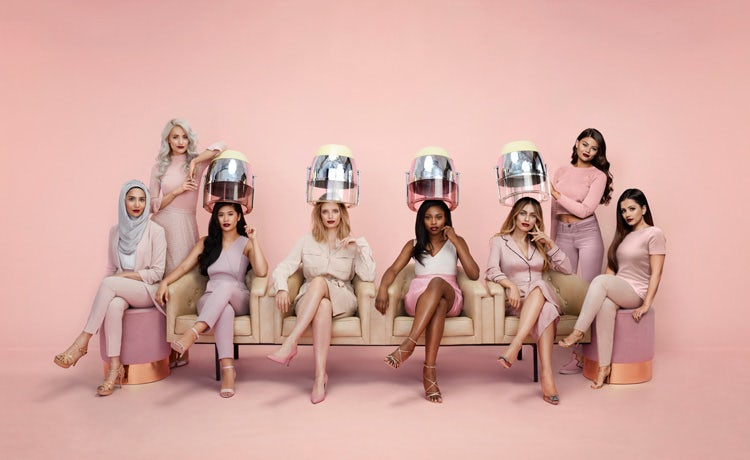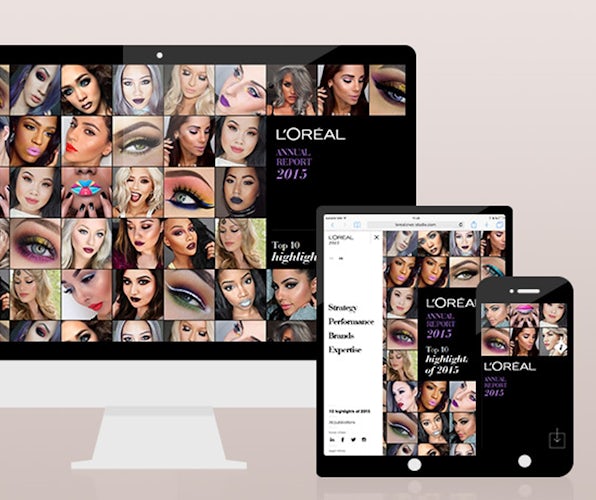L’Oréal: Innovate when business is good, not when change is critical
The French beauty giant’s new marketing boss takes aim at agencies that claim it isn’t a problem to lose clients, and urges brands not to put off innovation until the business is in trouble.

L’Oréal’s chief marketing officer claims brands should not wait for business to turn sour before kick-starting innovation, and instead shake things up when business is strong.
Talking at the ad:tech London conference this morning (29 November), Stéphane Bérubé, who has been CMO for Western Europe for two months, having spent 15 years with the business in Canada, said key to this is “never taking anything for granted”.
Besides talking about the fact marketers should not have a separate digital strategy, which is something he discussed with Marketing Week earlier this month, he explained how L’Oréal has managed to build its business after entering the digital world nearly 20 years ago.
Central to the strategy has been innovating when times are good. He referenced one of his colleagues, who during a meeting pointed out that “everything needed to change” despite the fact L’Oréal was cash rich, building market share in all its regions and growing sales. After all, he said, what might work for the company now might not in future.
READ MORE: Marketers must reclaim the word ‘innovation’ before it dies
“The message was, let’s not wait until the business is in trouble. You need to operate changes when business is going well, not the day you start losing customers,” he said.
“I see too many agencies losing clients, and they tell me it’s not a problem because they’ll gain another one. Instead of saying it’s not a problem, it should be a wake-up call. L’Oréal decided to accelerate this reinvention while we were growing and building market share. It was not declining.”
Staying true to your core values
Despite L’Oréal’s success, Bérubé claims it doesn’t have a silver bullet solution that will work for everyone. While brands need to constantly reinvent themselves, they need to stay true to their core values at all times.
For L’Oréal, entrepreneurship has always been hugely important to the business, and it spends a lot of time working with startups and startup incubators in the UK, France and the US to drive its digital transformation forward.
Let’s not wait until the business is in trouble. You need to operate changes when business is going well, not the day you start losing customers.
Stéphane Bérubé, L’Oréal
“Why am I saying this? If you’re in an organisation and you want to transform your organisation, you need to start with looking at what has made the organisation win. Even if it’s in the last three, five or 10 years, what is the core thing that you need to keep to keep winning? With L’Oréal, [entrepreneurship] has helped us with our digital transformation,” he explained.
One of the key changes that has happened with its brands is the amount of media they buy. Traditionally, L’Oréal has been “very proud” to share how much it was investing in media, as it was a sign the business was in good health. But in recent years, the company’s five fastest growing brands have not invested in digital media “at all”.
“I’m not talking about TV and print here. It’s a sign that the world is changing, and the brands that are still investing in media are not growing at the same rate they used to,” he said.
L’Oréal has a portfolio of 33 beauty brands in the UK, and has largely built its business through acquiring other brands. These have proven hugely important to its digital transformation.
For example, NYX was only acquired three years ago, but has significantly changed the way L’Oréal approaches its more traditional brands. While its other brands might focus on working with influencers, NYX asks consumers to send in user-generated content, which it will then use to promote its products. And with success – NYX is growing faster than “most of the other brands”.
Putting talent and training first

Bérubé says digital transformation is not something that can solely be achieved by bringing in outside talent. Instead, training needs to be of bigger importance so that when people leave, they are more knowledgeable about a topic than when they started.
“If you want to retain talent, you need to train your experts. If you are a specialist in Google Analytics (GA) working at Google, you will always learn something. But if you’re a Google Analytics specialist at L’Oréal, who is going to help you get better? That’s [something] L’Oréal takes very seriously. We train experts not just to remain experts but to remain best-in-class experts,” he says.
And while in previous years – between 2004 and 2015 – L’Oréal might have hired digital experts, it has now moved away from broader roles to more specific skill sets.
He concluded: “Now what we need is not a jack of all trades from an agency, we need [specific] expertise. I want a precision marketing specialist, an audience manager, I want a community manager. I don’t need digital people, I want experts. That’s a big difference.”






